
How To Find Divorcing Homeowners And List Them
Divorces are a huge, untapped source of listings. Over 700,000 homes are sold each year because of divorce. In this course, I’ll show you one way to tap into this niche and get the listings.
There are two ways to get Divorce Listings. One strategy is to cultivate referrals from Divorce Attorneys and other professionals involved in the business.
The other strategy is to reach out directly to people getting a divorce. Today, we’re going to talk about how to find the divorcing homeowners and list them.
Success Story:
Ed is an Authorify Member who has gotten about 10 divorce listings — 5 of which came from reaching out to homeowners who had filed for divorce.
Here’s what he had to say about his success approaching Divorcing Homeowners and listing them:
“I contacted the local Clerk of Court and asked how I could find Divorce Filings. Then, we used that information to find people who had filed for divorce.
From there, I narrowed it down to people who owned real estate and started contacting them. First, we mailed them our Book, along with a Cover Letter introducing us.
Then, we followed up on the phone, mailed letters, and even knocked on their door. We contacted about 70 people this way and obtained about 5 listings as a result.
Even better, most of those sellers ended up buying a house with me — either one spouse, or sometimes both. So, I got about 5 more buyer sales from that, as well.”
We took Ed’s Strategy and built a system that you can replicate in your market.
Here’s the step-by-step process you can use to find divorcing homeowners in your area and list them.
In this video Ben Curry walks you through the step-by-step process for researching divorce leads in our area.
Here are the basic steps you can follow to find the leads online in your area.
Step A: Find the divorce records on your local courthouse’s website. Most Divorce Court Cases are filed with your local Courthouse. You can usually find the information with a Google Search.
Try searching “CountyName County StateName Divorce Filing Search.”
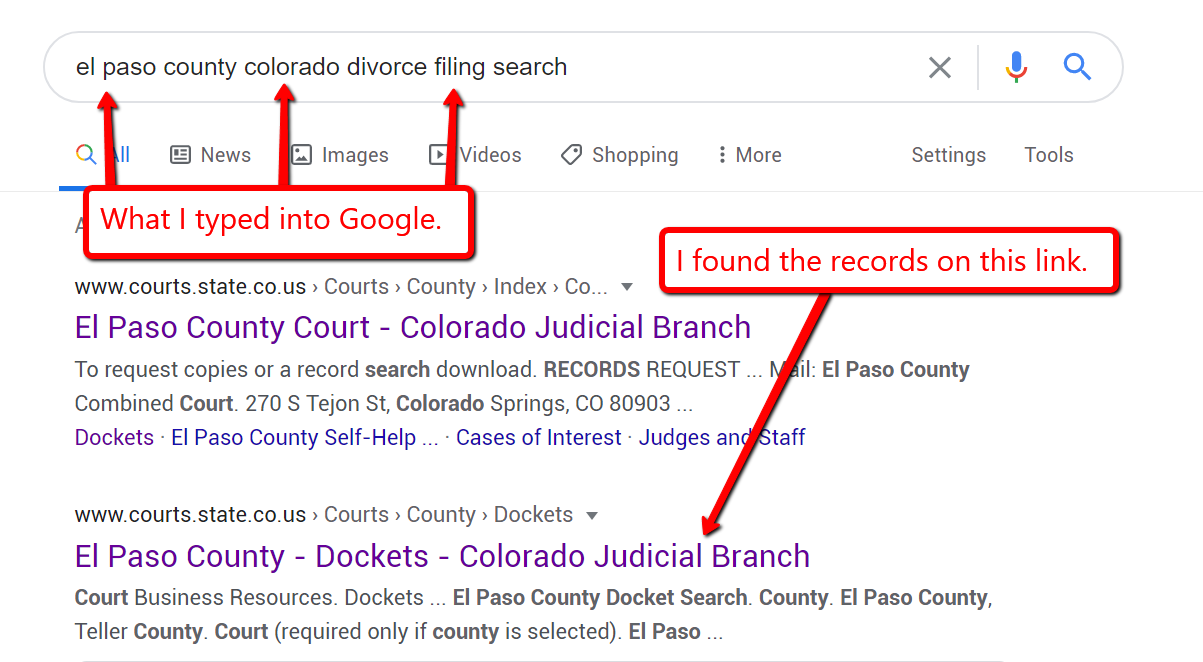
Try and search for the records on their website. Some of these sites are a little bit hard to navigate, and there is a good chance you will need to call their office for help.
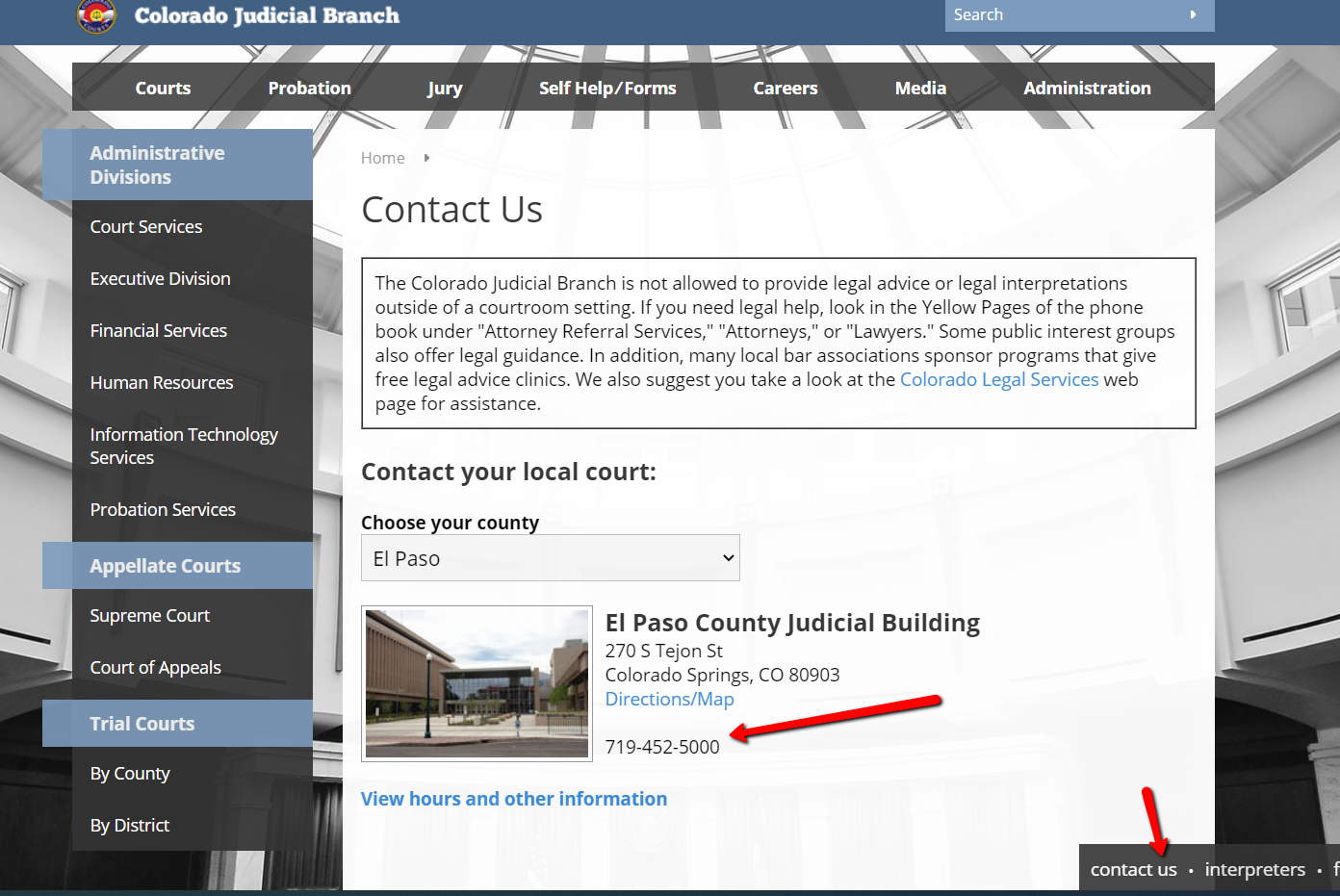
It will take some persistence, but once you figure it out, you’ll be able to find the court cases.
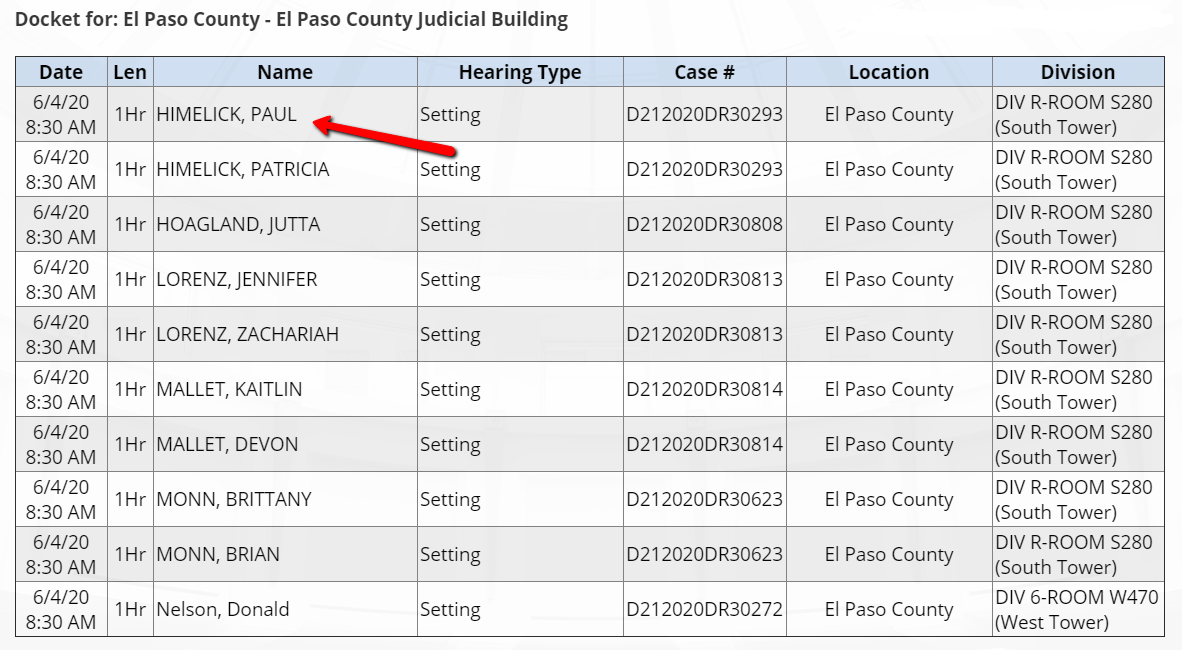
Step B: Check if the divorcing parties own real estate. To do that, cross reference their name with your local property records. You can usually find the property records on your county’s website. It’s usually called the Property Appraiser or Tax Assessor.
Just search for “CountyName County StateName Property Records Search.”
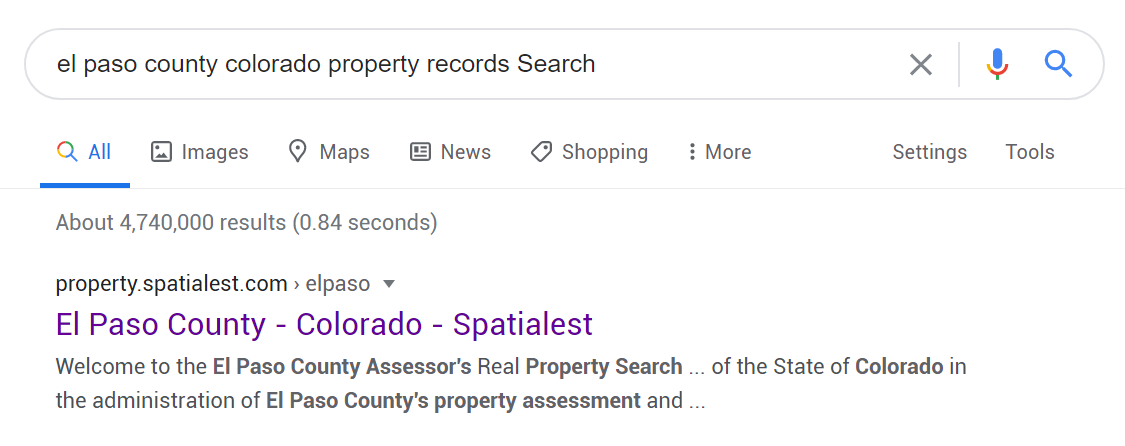
Now, search for the people’s names on the Property Records. In this case, I’m going to look up the Divorce Name from above.

And we have a winner. The Himelick’s own real estate:
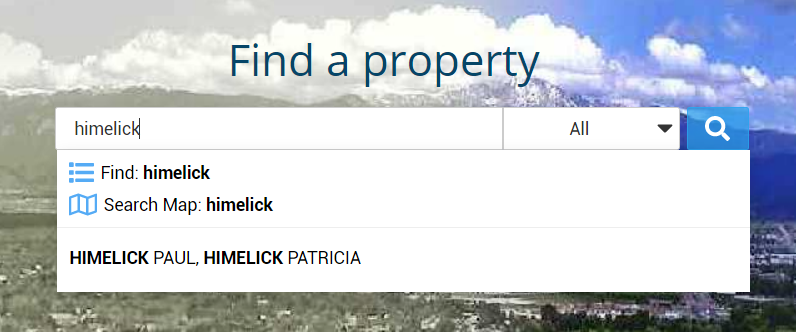
Let’s pull up their property:
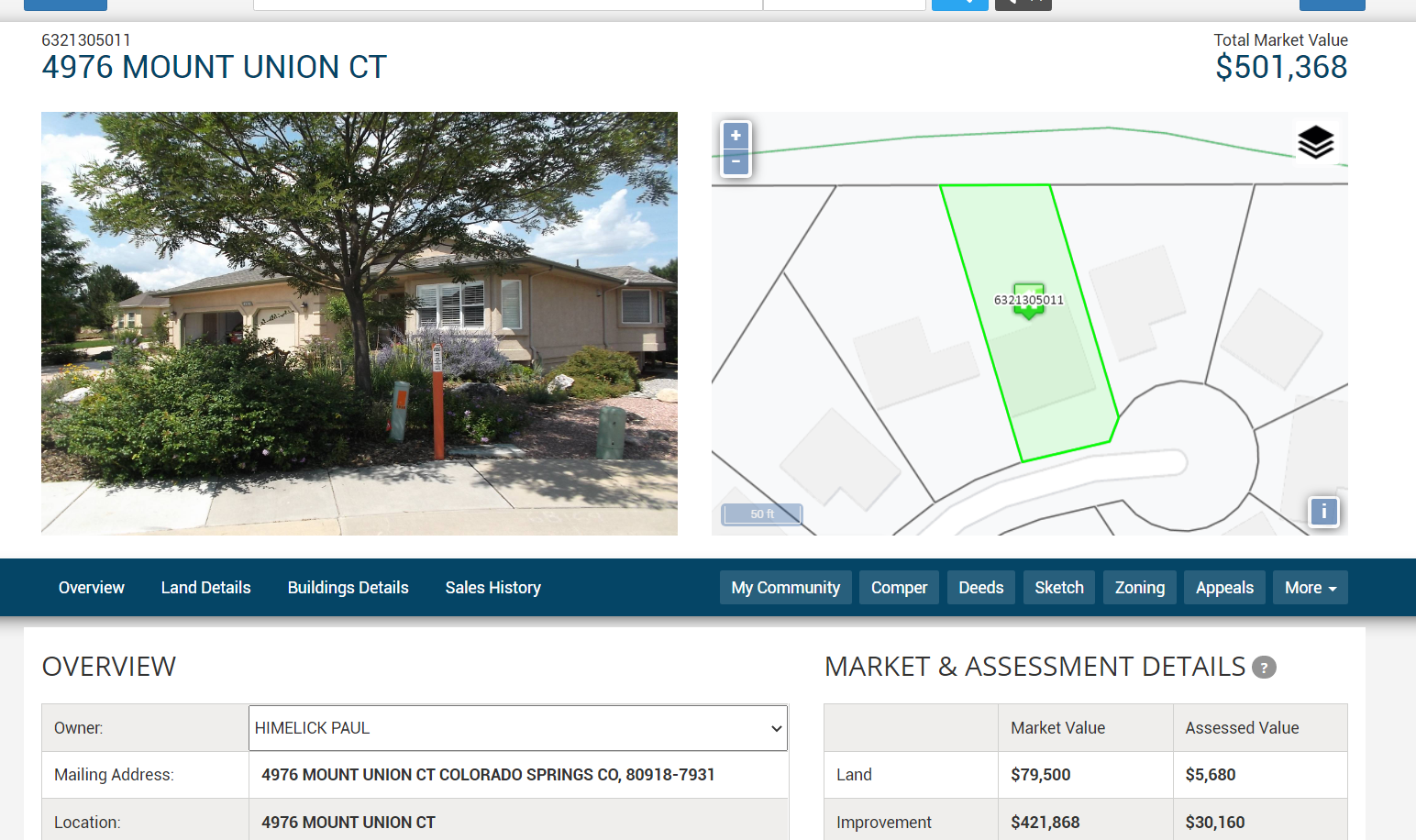
Now, let’s pull up their property on Zillow and get an idea of what it’s worth:
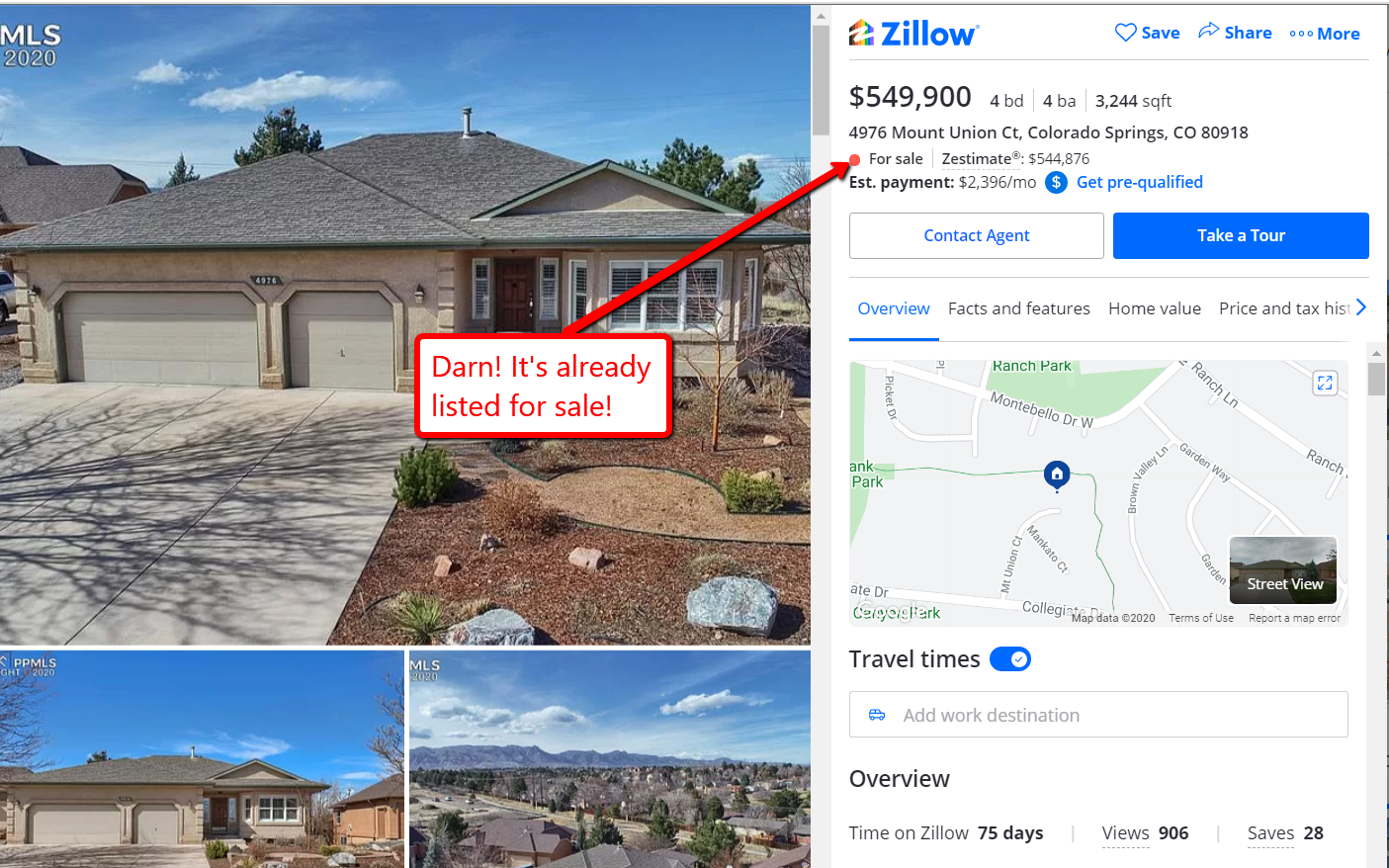
Darn! It’s already listed for sale. I searched about 10 divorce records. Four of them owned real estate, and this was the fourth one I researched. I wanted to show it to you to prove that these people do list their homes!
Step C: Get the party’s names and mailing address from the property records. You can usually find all the information you need on the property records website.
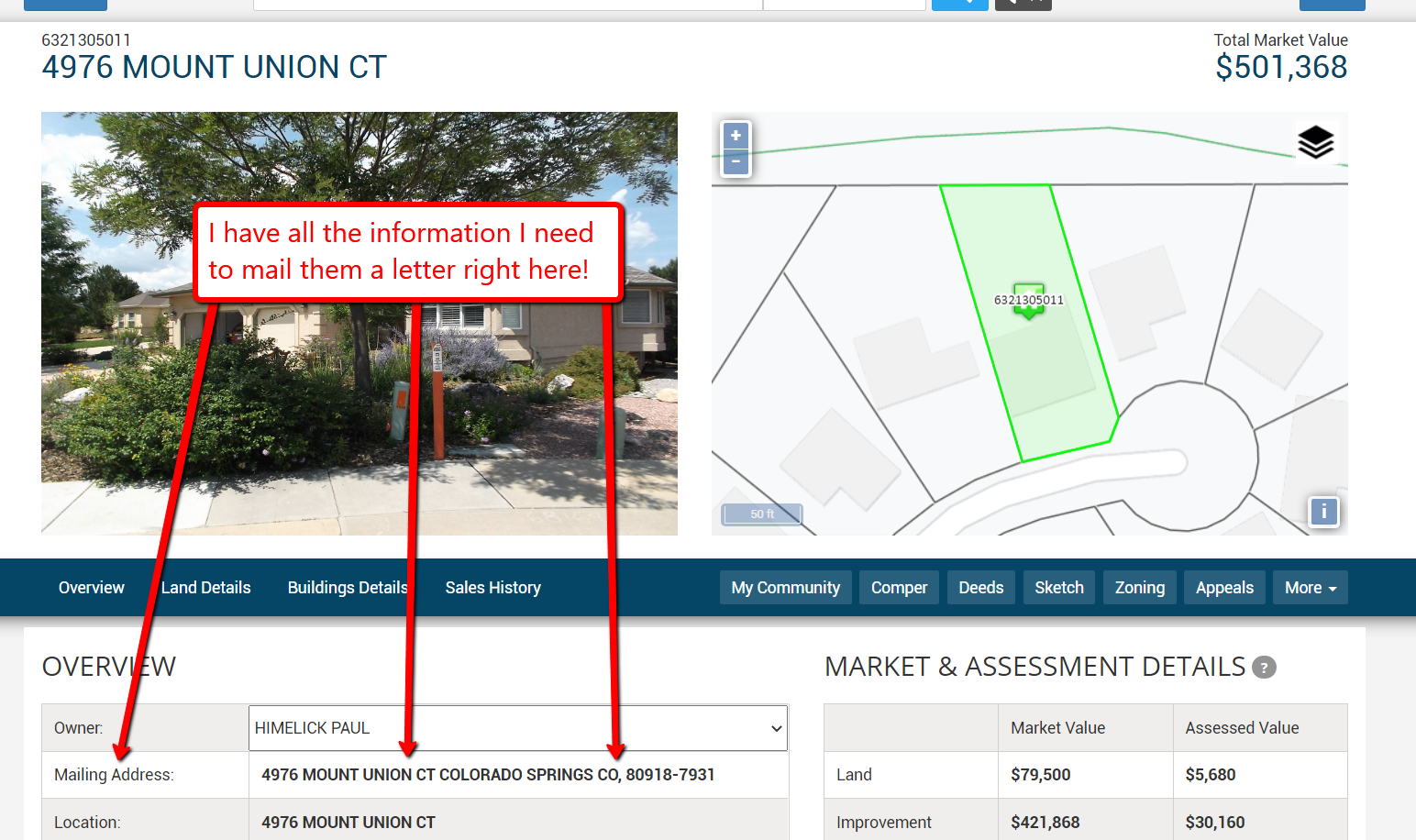
Step D: Find their phone numbers. The best way to do that is by simply Googling their name, city, and state. An example is below.
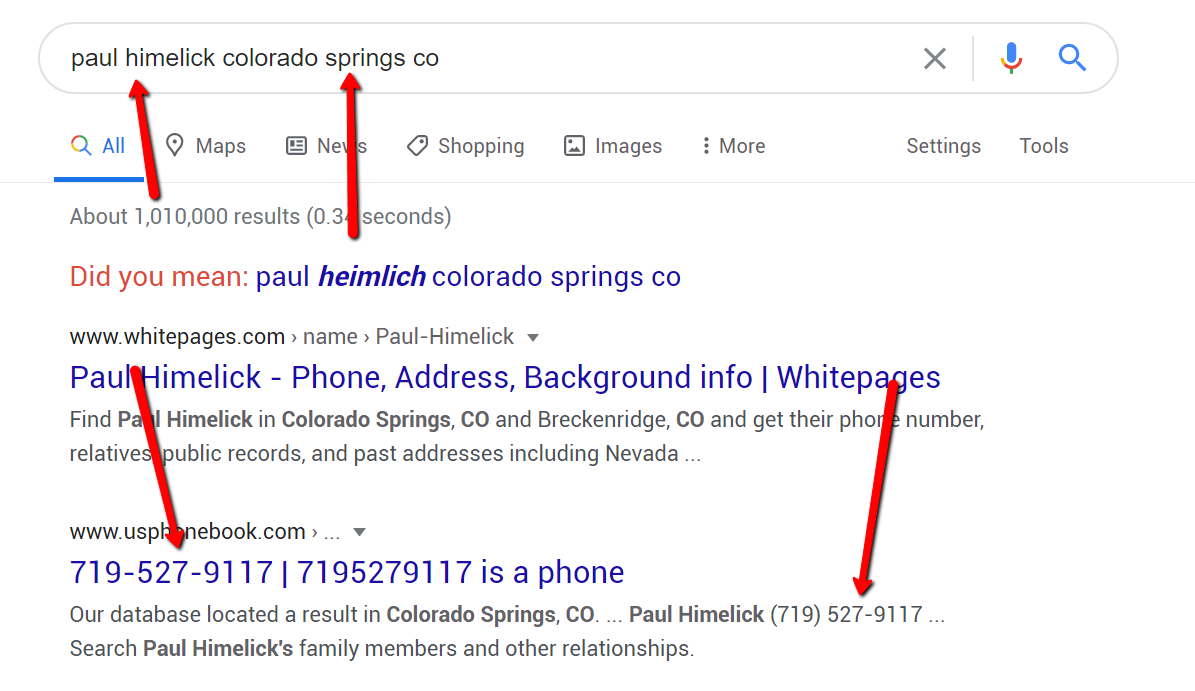
Another option is to search for them using Intelius Premier or WhitePages.com. Intelius Premier is the best because they provide cell phone numbers and don’t try to sell you unnecessary reports. It costs $20 a month, but you’ll save a lot of time using their service.
Step E. Organize your leads by adding them to your CRM or organizing them in a Google Sheet. If you use a CRM, then add them in. Or, you can add them to a simple Google Sheet like you see below:
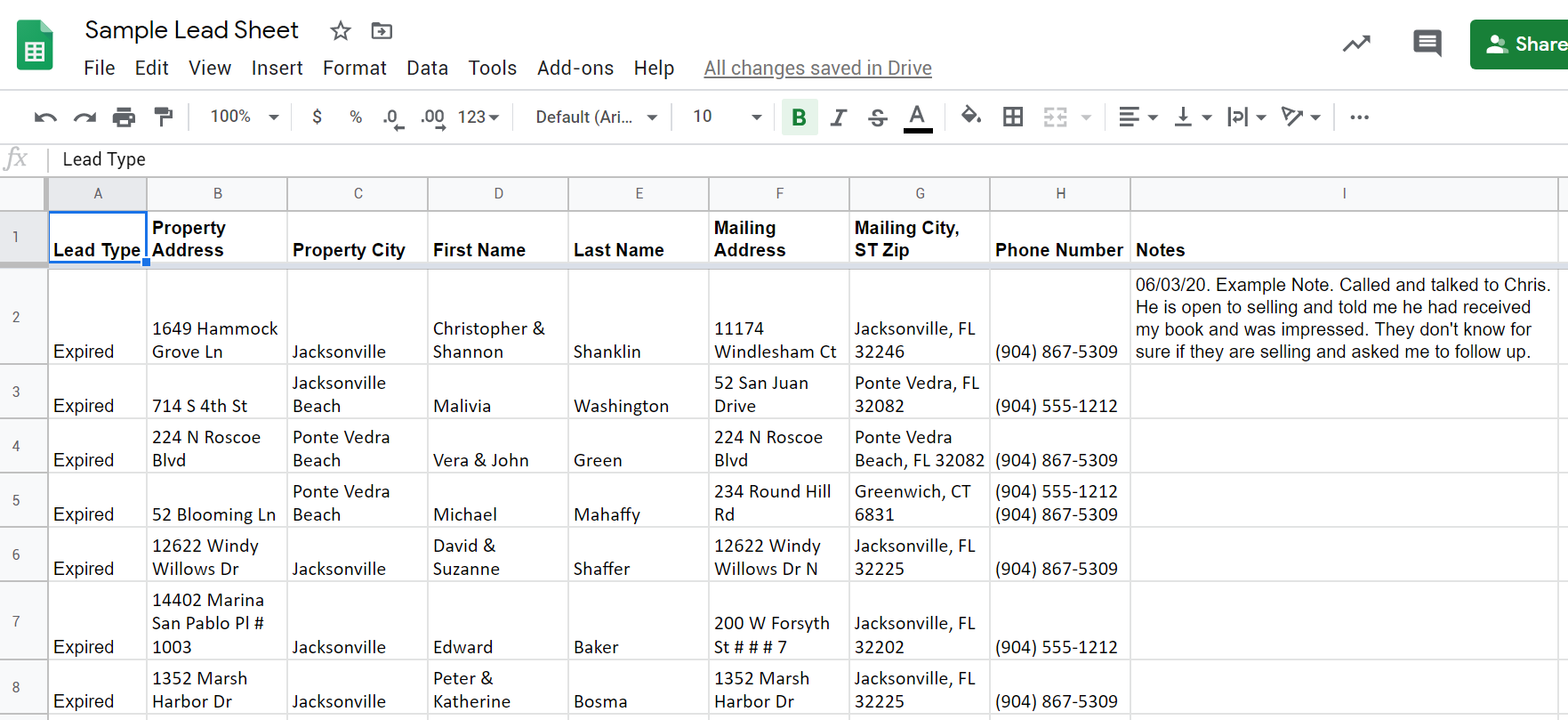
Notes on finding the leads:
It’s not easy to find the divorce filings, but if you’re persistent, you can usually find the information. If you cannot find the divorce filing information, then call your local courthouse and ask them for help.
I recommend calling several times until you find a clerk that will help you. When I was new to the business, some clerks told me that I couldn’t access certain courthouse records.
I didn’t believe them, called back, talked to another clerk, and they helped me find the information.
In the rare situation where you absolutely cannot find the divorce filings, try building relationships with attorneys in your area to get referrals. We have a training course on how to do that.
Ed said that sending out his book softened up the leads for a phone call. When he called a week later, they were friendly and receptive to him. Basically, sending the book first turned his “cold call” into a “warm call.”
How to address the envelopes and Cover Letter:
Send the envelope and cover letter to both parties. Here’s an example:
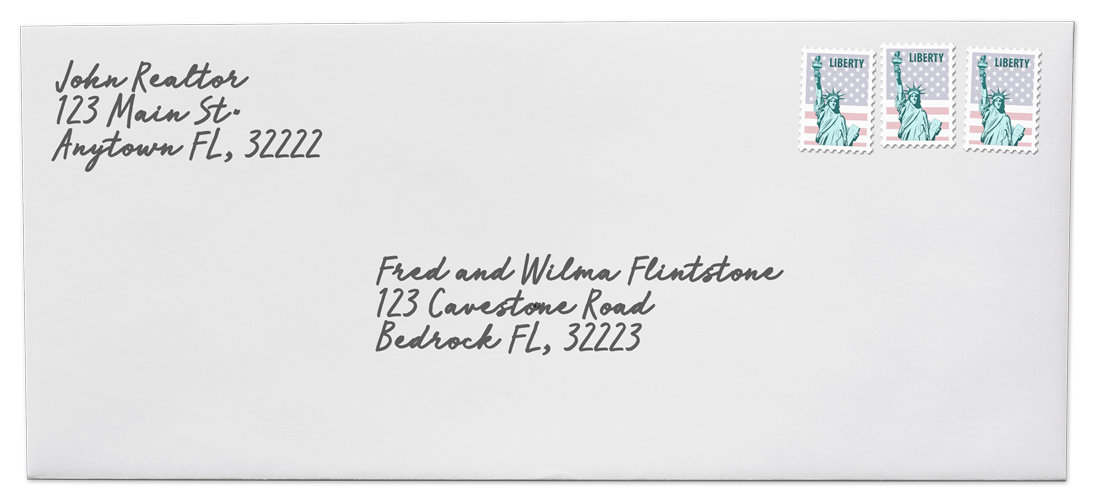
Ed mentioned that he addresses the letter to both parties and that worked well for him. My theory is that either party will be comfortable opening an envelope that is addressed to both of them.
How to mail your book.
Insert your book and the package contents inside a bubble mailer. Once you’ve got your books packed up, go to the post office, buy stamps and mail them to your leads.
Here’s an example of the book being put into a bubble mailer.
Where to buy the bubble mailers:
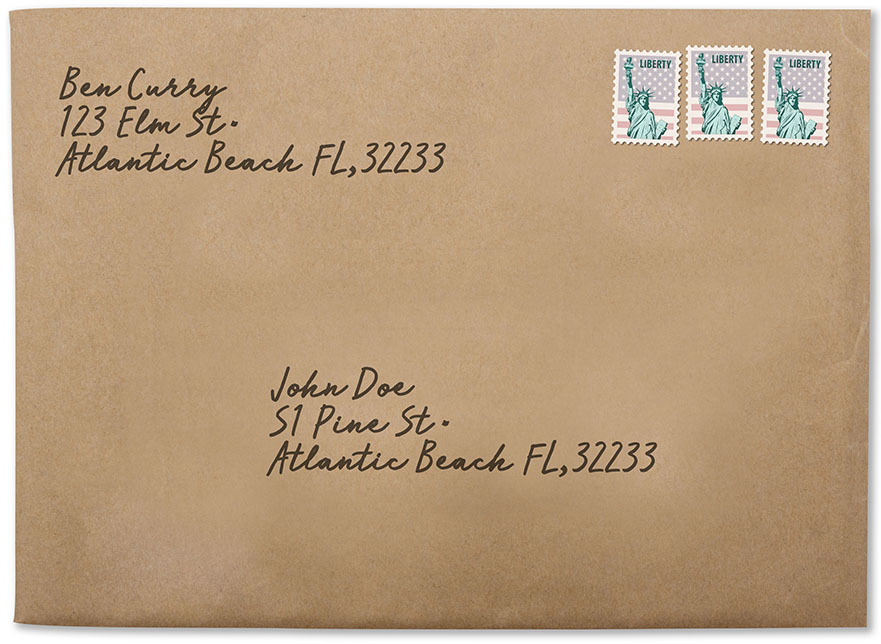
Alternatively, you could insert your book into a clear bag, fold the cover letter over and insert it inside the pages, and leave that at the front door.

What to include with your book. We recommend including a Cover Letter that introduces yourself and explains how you can help. Below is a Cover Letter you can use.
Here’s what happened to Ed after he mailed about 70 divorcing homeowners. A few homeowners called and complained that he was mailing them. They were frustrated with the entire divorce process and vented their frustrations to him.
He listened politely, apologized that they felt that way, then reminded them that his goal was simply to help anyone who needed his help. After that reminder, they felt better and ended the conversation on good terms.
Follow up on your leads about a week after you mail them your package. Here’s a script you can use to follow up, start a conversation, and get listings.
If they are on the Do-Not-Call-List, then knock on their door and talk to them. You can use the script to start the conversation.
Important notes:
Follow up repeatedly until you reach them. In our experience, about 60% of all listings are obtained after multiple calls. One time, we listed a home after calling a seller just about every day for 2 weeks. It took 10 phone calls, but the $8,750 commission was worth the extra calls!
Most of the people you call will be friendly. But, a few will be unhappy that you’re calling them. If they complain, simply apologize and end the phone call.
Focus on how you can help and stay positive. If someone is negative, complaining about life, or talking poorly about their spouse, don’t get sucked into their negativity or fights. Your job is to sell the home for top dollar and treat both parties fairly.
Let the divorce attorneys fight it out! They get paid by the hour to fight and cause problems. You and I don’t!
If you can’t reach either party after five calls, mail them the letters below, wait a week, and call them again. Repeat this process until you’ve sent the four follow-up letters and followed up four more times over the phone.
Divorce-Follow-Up-Letter-1-Marketing
Divorce-Follow-Up-Letter-2-Formula
Your main goal is to meet with one or both parties, build rapport, and put yourself in first position as the agent to hire if they do decide to sell.
If possible, try and meet with both parties together. If not, you need to meet with one, do a CMA, give them your listing presentation, and try to win them over. After that, you need to meet with the other party and go through the entire process with them, as well.
If you succeed with this method, you can win over both parties and win the listing. It’s actually not that hard to be the winning “neutral” agent. Here’s why.
Most of the time, if one party brings in their preferred agent, the other one will naturally distrust that “preferred” agent because they feel like they’ll represent the other party at their expense.
So, unless both parties have a “neutral” agent that they like and trust – which is rare – it’s easy for you to be that “neutral” agent and win the listing.
Here’s a helpful video from Rozalyn Franklin, an Authorify Member who told us how she wins Divorce Listings.
Additional tips for winning the listings:

